This article needs additional citations for verification. (August 2015) (Learn how and when to remove this template message) |
| Ashoka | |
|---|---|
| Chakravartin | |
 A c.?1st century BCE/CE relief from Sanchi, showing Ashoka on his chariot, visiting the Nagas at Ramagrama. | |
| 3rd Mauryan emperor | |
| Reign | c.?268 – c.?232 BCE |
| Coronation | 268 BCE |
| Predecessor | Bindusara |
| Successor | Dasharatha |
| Born | Pataliputra, modern-day Patna |
| Died |
232 BCE Pataliputra, modern-day Patna |
| Spouse |
|
| Issue |
|
| Dynasty | Maurya |
| Father | Bindusara |
| Mother | Subhadrangi (also called Dharma) |
Ashoka (English: /???o?k?/; Sanskritized as IAST: A?oka), or Asoka, sometimes Ashoka the Great, was an Indian emperor of the Maurya Dynasty, who ruled almost all of the Indian subcontinent from c.?268 to 232 BCE. The grandson of the founder of the Maurya Dynasty, Chandragupta Maurya, Ashoka promoted the spread of Buddhism. One of India's greatest emperors, Ashoka expanded Chandragupta's empire to reign over a realm stretching from present-day Afghanistan in the west to Bangladesh in the east. It covered the entire Indian subcontinent except for parts of present-day Tamil Nadu, Karnataka and Kerala. The empire's capital was Pataliputra (in Magadha, present-day Patna), with provincial capitals at Taxila and Ujjain.
Ashoka waged a destructive war against the state of Kalinga (modern Odisha), which he conquered in about 260 BCE. In about 263 BCE, he converted to Buddhism after witnessing the mass deaths of the Kalinga War, which he had waged out of a desire for conquest and which reportedly directly resulted in more than 100,000 deaths and 150,000 deportations and led to around 200,000 deaths. He is remembered for the Ashoka pillars and edicts, for sending Buddhist monks to Sri Lanka and Central Asia, and for establishing monuments marking several significant sites in the life of Gautama Buddha.
Beyond the Edicts of Ashoka, biographical information about him relies on legends written centuries later, such as the 2nd-century CE Ashokavadana ("Narrative of Ashoka", a part of the Divyavadana), and in the Sri Lankan text Mahavamsa ("Great Chronicle"). The emblem of the modern Republic of India is an adaptation of the Lion Capital of Ashoka. His Sanskrit name "A?oka" means "painless, without sorrow" (the a privativum and ?oka, "pain, distress"). In his edicts, he is referred to as Dev?n?mpriya (Pali Dev?na?piya or "the Beloved of the Gods"), and Priyadar?in (Pali Piyadas? or "He who regards everyone with affection"). His fondness for his name's connection to the Saraca asoca tree, or "Ashoka tree", is also referenced in the Ashokavadana. In The Outline of History, H.G. Wells wrote, "Amidst the tens of thousands of names of monarchs that crowd the columns of history, their majesties and graciousnesses and serenities and royal highnesses and the like, the name of Ashoka shines, and shines, almost alone, a star."
Contents
Biography
Ashoka's early life
Ashoka was born to the Mauryan emperor, Bindusara and Subhadrang? (or Dharm?). He was the grandson of Chandragupta Maurya, founder of the Maurya dynasty and the builder of one of the largest empires in ancient India. According to Roman historian Appian, Chandragupta had made a "marital alliance" with Seleucus; An Indian Puranic source, the Pratisarga Parva of the Bhavishya Purana, also described the marriage of Chandragupta with a Greek ("Yavana") princess, daughter of Seleucus.
The ancient Buddhist, Hindu, and Jain texts provide varying biographical accounts. The Avadana texts mention that his mother was queen Subhadrang?. According to the Ashokavadana, she was the daughter of a Brahmin from the city of Champa.:205 She gave him the name Ashoka, meaning "one without sorrow". The Divy?vad?na tells a similar story, but gives the name of the queen as Janapadakaly?n?. Ashoka had several elder siblings, all of whom were his half-brothers from the other wives of his father Bindusara. Ashoka was given royal military training.
Rise to power
The Buddhist text Divyavadana describes Ashoka putting down a revolt due to activities of wicked ministers. This may have been an incident in Bindusara's times. Taranatha's account states that Chanakya, Bindusara's chief advisor, destroyed the nobles and kings of 16 towns and made himself the master of all territory between the eastern and the western seas. Some historians consider this as an indication of Bindusara's conquest of the Deccan while others consider it as suppression of a revolt. Following this, Ashoka was stationed at Ujain, the capital of Malwa, as governor.
Bindusara's death in 272 BCE led to a war over succession. According to the Divyavadana, Bindusara wanted his elder son Susima to succeed him but Ashoka was supported by his father's ministers, who found Susima to be arrogant and disrespectful towards them. A minister named Radhagupta seems to have played an important role in Ashoka's rise to the throne. The Ashokavadana recounts Radhagupta's offering of an old royal elephant to Ashoka for him to ride to the Garden of the Gold Pavilion where King Bindusara would determine his successor. Ashoka later got rid of the legitimate heir to the throne by tricking him into entering a pit filled with live coals. Radhagupta, according to the Ashokavadana, would later be appointed prime minister by Ashoka once he had gained the throne. The Dipavansa and Mahavansa refer to Ashoka's killing 99 of his brothers, sparing only one, named Vitashoka or Tissa, although there is no clear proof about this incident (many such accounts are saturated with mythological elements). The coronation happened in 269 BCE, four years after his succession to the throne.
Buddhist legends state that Ashoka was bad-tempered and of a wicked nature. He built Ashoka's Hell, an elaborate torture chamber described as a "Paradisal Hell" due to the contrast between its beautiful exterior and the acts carried out within by his appointed executioner, Girikaa. This earned him the name of Chanda Ashoka (Ca??a A?oka) meaning "Ashoka the Fierce" in Sanskrit. Professor Charles Drekmeier cautions that the Buddhist legends tend to dramatise the change that Buddhism brought in him, and therefore, exaggerate Ashoka's past wickedness and his piousness after the conversion.
Ascending the throne, Ashoka expanded his empire over the next eight years, from the present-day Assam in the East to Balochistan in the West; from the Pamir Knot in Afghanistan in the north to the peninsula of southern India except for present day Tamil Nadu and Kerala which were ruled by the three ancient Tamil kingdoms.
| Territorial evolution of the Mauryan Empire | |
| |
Marriage
From the various sources that speak of his life, Ashoka is believed to have had five wives. They were named Devi (or Vedisa-Mahadevi-Shakyakumari), the second queen, Karuvaki, Asandhimitra (designated agramahis? or "chief queen"), Padmavati, and Tishyarakshita. He is similarly believed to have had four sons and two daughters: a son by Devi named Mahendra (Pali: Mahinda), Tivara (son of Karuvaki), Kunala (son of Padmavati, and Jalauka (mentioned in the Kashmir Chronicle), a daughter of Devi named Sanghamitra (Pali: Sanghamitta), and another daughter named Charumati.
According to one version of the Mahavamsa, the Buddhist chronicle of Sri Lanka, Ashoka, when he was heir-apparent and was journeying as Viceroy to Ujjain, is said to have halted at Vidisha (10 kilometers from Sanchi), and there married the dau
Watch movie Asoka online on Amazon
Up to 70% discount on Mobile and laptop for today : Buy now

Up to 80% discount on Pampers diapers other baby product : Buy now 

Stream Movie Now
Watch movie Asoka online
Watch The Movie On PrimeZulm Ki Zanjeer Full HD Movie Download
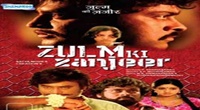
Dil Ne Phir Yaad Kiya (2003) Full HD Movie Download
.jpg)
Chillar Party Full HD Movie Download

Shaheed-E-Azam Sardar Bhagat Singh Full HD Movie Download
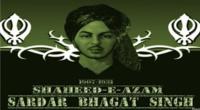
Dil Dosti etc. Full HD Movie Download

Dulara Full HD Movie Download

Hotel (1981) Full HD Movie Download
.jpg)
Loafer (1973) Full HD Movie Download
.jpg)
Rajkumar (1996) Full HD Movie Download
.jpg)
Eno Onthara Full HD Movie Download
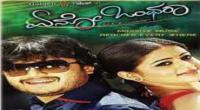
Amalapuram Alludu Full HD Movie Download
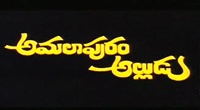
Babbi Abbai Full HD Movie Download
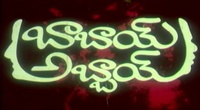
Ra Ra Krishnayya Full HD Movie Download
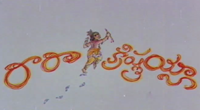
Shiv Senapati-The Warrior Full HD Movie Download

Aaj Ka Naya Kamina Full HD Movie Download

Steamboat Bill Jr. Full HD Movie Download
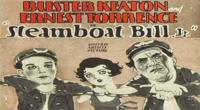
Aithe Full HD Movie Download
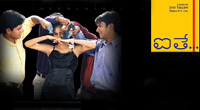
Ayanagaru Full HD Movie Download
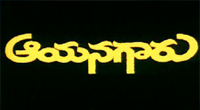
Tarzan Sundari Full HD Movie Download
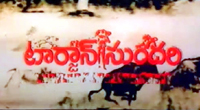
Gudachari 116 Full HD Movie Download

Pyaar Impossible Full HD Movie Download

Download latest Movie from bollywood
- 1> baaghi 3
- 2> THE SKY IS PINK MOVIE FULL STORY AND REVIEW
- 3> Luka Chuppi
- 4> TO ALL THE BOYS I’VE LOVED BEFORE
- 5> Kabir Singh
- 6> Street Dancer 3D
- 7> Simmba
- 8> Gone Girl
- 9> The Girl Who Lived
- 10> Ludo
- 11> DILWALE DULHANIA LE JAYENGE
- 12> GUILTY
- 13> The Godfather
- 14> Adventures of Rusty
- 15> Sooryavanshi
- 16> Satyameva Jayate 2
- 17> Thappad
- 18> Bhool Bhulaiyaa 2
- 19> KGFChapter 2
- 20> Mardaani 2
- 21> Pinjar
- 22> Shivaji maharaj
- 23> Ek Villian 2
- 24> Hungama 2
- 25> Divergent
- 26> Mumbai Saga
- 27> The Internship
- 28> HIT (telugu)
- 29> Panga
- 30> The perfect date
- 31> 16 December
- 32> Gopala Gopala (Telugu)
- 33> Brahmastra
- 34> Gangubai Kathiawadi
- 35> Manmadhudu
- 36> Nenu local
- 37> Mahanati
- 38> Shatamanam bavathi
- 39> Lagaan
- 40> After
- 41> MOM
- 42> Shamshera
- 43> Raguvaran BTech
- 44> Khakee
- 45> The villain
- 46> OM
- 47> Mr. perfect
- 48> Bueatifull mind
- 49> Hichki
- 50> Gabbar Singh
- 51> Jogi
- 52> Before Sunrise
- 53> Before Sunset
- 54> Before Midnight
- 55> The Big Bull
- 56> Top Gun: Maverick
- 57> The Purge
- 58> The Sky is Pink
- 59> Laxmmi Bomb
- 60> Sadak 2
- 61> Sufna
- 62> Prithviraj
- 63> PK
- 64> Coolie No 1(2020)
- 65> Black Widow
- 66> Dear Zindagi
- 67> Dil Bechara
- 68> PHIR HERA PHERI
- 69> WAR
- 70> Dostana
- 71> RRR: Roudram Ranam Rudhiram
- 72> Maidan
- 73> Dabbang 3
- 74> Chhalaang
- 75> life as we know it
- 76> SherShaah
- 77> Sandeep Aur Pinky Faraar
- 78> Event Horizon
- 79> 83
- 80> Radhe: Your Most Wanted Bhai
- 81> Gunjan Saxena: The Kargil Girl
- 82> Mr India
- 83> Vivah
- 84> Anokha Bandhan
- 85> Ghost
- 86> Bhoot: Part One - The Haunted Ship
- 87> Haseen Dilruba
- 88> Laal Singh Chaddha
- 89> Qismat
- 90> Rajput
- 91> Drive
- 92> Dil Chahta Hai
- 93> Dil Ki Baazi
- 94> Dil Ka Rishta
- 95> Teesri Manzil
- 96> Dil
- 97> Love Aaj Kal
- 98> Khaali Peeli
- 99> Bunty Aur Babli 2
- 100> Atrangi Re
- 101> Gulabo Sitabo
- 102> Jodi
- 103> Suraj Pe Mangal Bhari
- 104> Deewana
- 105> Attack
- 106> Sardar Udham Singh
- 107> Toofan
- 108> THE LOVEBIRDS
- 109> Jersey
- 110> Ginny Weds Sunny
- 111> Thalaivi
- 112> Shiddat
- 113> Angels vs Zombies
- 114> Koi Mil Gya
- 115> Thank God
- 116> Bhuj: The Pride of India
- 117> Hum Aapke Hain Kaun
- 118> The Platform
- 119> Bird Box
- 120> Roohi Afzana
- 121> Torbaaz
- 122> Nikamma
- 123> World War Z
- 124> Extraction
- 125> Train to Busan
- 126> Life of Pi
- 127> SHAADI MEIN JROOR AANA
- 128> Himmat Aur Mehnat
- 129> To All The Boys: P.S. I Still Love You
- 130> Mimi
- 131> Good Newwz
- 132> Shubh Mangal Zyada Saavdhan
- 133> Raabta
- 134> Harry Potter and the Philosopher's Stone
- 135> Harry Potter and the Chamber of Secrets
- 136> Chhapaak
- 137> War of the Worlds
- 138> Harry Potter and the Prisoner of Azkaban
- 139> Harry Potter and the Goblet of Fire
- 140> MURDER MYSTERY
- 141> Shakuntala Devi
- 142> Bachchan Pandey
- 143> Jayeshbhai Jordar
- 144> Sheer Qorma
- 145> Saina
- 146> 'O' Pushpa I hate tears
- 147> Kedarnath
- 148> MS Dhoni The Untold Story
- 149> Chhichhore
- 150> Badhaai Ho
- 151> Unstoppable
- 152> Oz the Great And Powerful
- 153> The Girl on the Train
- 154> Haathi Mere Saathi 2020
- 155> The Conjuring: The Devil Made Me Do It
- 156> Gandhi Se Pehle Gandhi
- 157> The Song of Scorpions
- 158> Srimanthudu
- 159> Hello Guru Prema Kosame
- 160> Beauty and The Beast
- 161> Black Panther
- 162> Charlie and the Chocolate Factory
- 163> Bole Chudiyan
- 164> Fidaa
- 165> Duvvada Jagannadham
- 166> Bruce Lee: The Fighter
- 167> Hyper
- 168> Yaara
- 169> Red (2020)
- 170> Shivam
- 171> That Is Mahalakshmi
- 172> Nishabdham
- 173> Aashram 2020 web series
- 174> Laxmii
- 175> Mismatched
- 176> STUDENT OF THE YEAR 2
- 177> NAIL POLISH
- 178> Ramprasad Ki Tehrvi
- 179> KAAGAZ
- 180> 12 o Clock
- 181> The Power
- 182> bolo hau
- 183> Tribhanga
- 184> JAMUN
- 185> Madam Chief Minister
- 186> Maasaab
- 187> Aadhaar
- 188> Tanhaji
- 189> Bhaagi 3
- 190> Bhootnath
- 191> MALANG
- 192> Jai Mummy Di
- 193> Haathi Mere Saathi 2021
- 194> Shakeela
- 195> Unpaused
- 196> Annayya
- 197> Vamsoddharakudu
- 198> Mrugaraju
- 199> Narasimha Naidu
- 200> Sankranti
- 201> Manasu Maata Vinadhu
- 202> Anjaane
- 203> Apaharan
- 204> Bachke Rehna Re Baba
- 205> Bewafaa
- 206> Roohi
- 207> Radhe
- 208> Zindagi Khoobsoorat Hai
- 209> Yeh Mohabbat Hai
- 210> Yeh Kya Ho Raha Hai?
- 211> The Tomorrow War
- 212> DehradunDiary
- 213> Meri Shaadi Karaoo
- 214> Matruu Ki Bijlee Ka Mandola
- 215> No One Killed Jesica
- 216> Aag Ka Goola
- 217> Eight Million Dollars
- 218> Three Hundred
- 219> Cats and Dog
- 220> Decoy
- 221> Gold Rush
- 222> You Have Got Mail
- 223> Final Destination three
- 224> Tofan
- 225> Jungle


